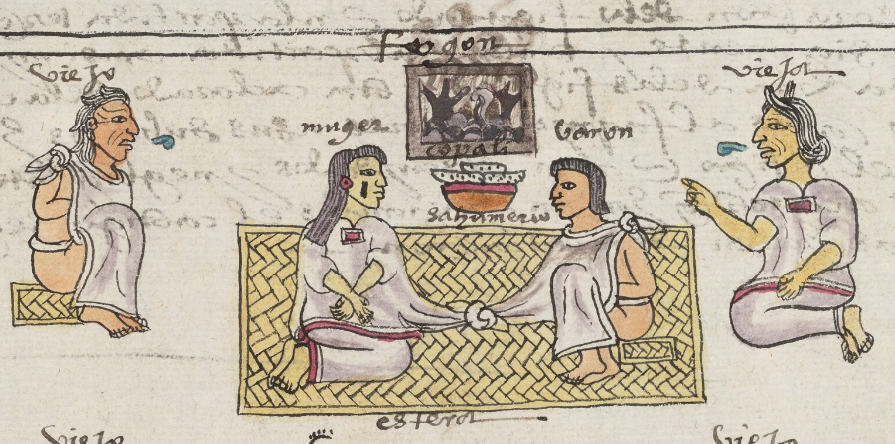ilamatl (Mdz61r)
This example of the iconography of an elder woman (which we are calling ilamatl (although simply "ilama" is often how it appears in texts) based on the Spanish-language gloss, vieja, old woman) is provided here for the purpose of making comparisons with hieroglyphs and glyphic elements. In this case, the elder woman in shown in profile, facing toward the viewer's left. She has lines on her face and gray hair. She wears the classic white cotton huipilli with the red rectangle (pechero in Spanish) at the base of the v-neck. Her mouth is open slightly, but no teeth are visible.
Stephanie Wood
For other examples of ilamatl, see below. And see the contextualizing image, which captures her counterpart in the viejo (which we are calling a huehue, elder male).
Stephanie Wood
vieja
Stephanie Wood
c. 1541, or by 1553 at the latest
ilama(tl), an elder woman, https://nahuatl.wired-humanities.org/content/ilamatl
ilama, an elder woman, https://nahuatl.wired-humanities.org/content/ilama
Codex Mendoza, folio 61 recto, https://digital.bodleian.ox.ac.uk/objects/2fea788e-2aa2-4f08-b6d9-648c00..., image 132 of 188.
Original manuscript is held by the Bodleian Libraries, University of Oxford, MS. Arch. Selden. A. 1; used here with the UK Creative Commons, “Attribution-NonCommercial-ShareAlike 3.0 License” (CC-BY-NC-SA 3.0)





